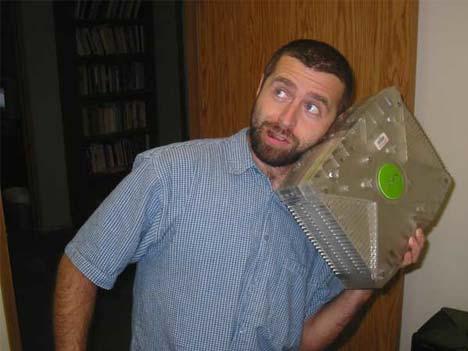
For decades now, the game console market has progressed in a reliable pattern. Roughly every six or seven years, console makers would introduce new hardware expected to completely replace the old. After a short transitional period, support for the older hardware would dry up on the part of both developers and the console makers themselves. Everyone would move on.
This year's E3 has provided an important inflection point for that model. Both Sony and Microsoft are announcing new hardware intended to complement, rather than replace, their current consoles. It's a move that will have far-reaching implications for what console gaming looks like going forward. Goodbye to the game console as we know it. Hello to the tiered console platform.
Sony technically started things off, confirming days before E3 that the codenamed PlayStation 4 Neo would "sit alongside and complement the standard PS4" throughout that system's lifecycle. Microsoft took it even further at its press presentation Monday, announcing the codenamed Xbox One Scorpio as a six-teraflop workhorse that will support "true 4K gaming" and high-end virtual reality by the end of 2017. These announcements are odd, for one, because by 2017 it will have been only four years since Sony and Microsoft's last consoles hit the market. But they're even odder because both companies insist the new hardware doesn't represent a full, generational split with their existing console ecosystems. Microsoft stressed that all existing and upcoming Xbox One games and peripherals would work with Scorpio (as well as the slimmed down Xbox One S releasing this year). Sony said that "all games will support the standard PS4, and we anticipate all or a very large majority of games will also support the high-end PS4."That's almost a necessity to encourage players that the shiny new hardware and software they just bought (or may buy soon) won't be completely obsolete in just over a year. The plan seems to be to allow players to buy into a singular software ecosystem at a variety of hardware power and price points that provide different levels of graphical fidelity (you know, kind of like a PC). The current hardware won't become obsolete,; it will just become the "budget" option to access the same game library.
What does the console’s future look like?
Looking further down the line, it's natural to now wonder what we can expect when the Neo and Scorpio are themselves four years old. In 2021, will developers still be expected to make games fully compatible with the original Xbox One and PS4 (console hardware that will be pushing eight years old at that point)? Or will developers be allowed to focus on the "legacy" Neo/Scorpio hardware and (presumably) whatever new top-end upgrade will replace them?
Over time, it seems likely that Microsoft and Sony will let developers make a natural progression toward choosing what specific console power tiers they want to target. Players, meanwhile, will be able to take their entire game library with them from console to console, including "free" games earned through years of subscription programs like Xbox Live Gold and PlayStation Plus. The hardware may change, but the underlying software platform will remain locked-in and constant.
In this way, the console game market may start to resemble the app market on mobile phones. While iOS developers can technically make apps that work on any iPhones released in the last eight years, those developers overwhelmingly target their apps to work on the least powerful phone hardware that's still in wide use.
Neo and Scorpio seem like the game console market making a distinct step toward a cell phone upgrade model (even though we're still a long way off from new console hardware coming out annually). There are important differences in the two markets, though. For one, mobile phone replacement is largely driven by subsidies offered through annual cell phone contracts with service providers. Phones also tend to see annual advances in more than just base processing power—better screens, better cameras, and new form factors are just as important as new chips in encouraging mobile phone upgrades.
PC players are already used to upgrading their systems every few years rather than waiting for a new console (they're also used to games made to work with many different tiers of hardware power and full backward compatibility with older operating systems). But PCs are modular—most PC gamers can get by with a few gigs of RAM one year, a new graphics card the next, and a new motherboard once in a long while. Upgrading to a new console, on the other hand, is the equivalent of throwing out the entire computer and buying a new one every four years, incurring the full cost that entails.It's possible that Neo and Scorpio are merely one-time stopgap solutions; a way to prop up a console generation that is looking increasingly unable to keep up with the demands of new 4K TV standards, virtual reality headsets, and games designed for high-end PCs on the same basic x86 architecture. Maybe Microsoft simply wanted a way to short circuit the conventional wisdom that the Xbox One is less powerful than the PlayStation 4, forcing Sony to respond in kind (though it's hard to suss out the cause and effect of the concurrent development). By 2021, maybe Microsoft and Sony will throw everything out and once again start a new console generation, making a clean break with new hardware.
More likely, though, we're looking at the dawn of an age where game consoles start to look a lot more like cell phones and PCs. That means frequent hardware updates that coexist with less-powerful legacy hardware on a power continuum, all tying into a centralized and largely cross-compatible pool of software. As Microsoft's Phil Spencer put it, this E3 could mark "the start of gaming beyond generations." It's going to be an interesting transition.
reader comments
163